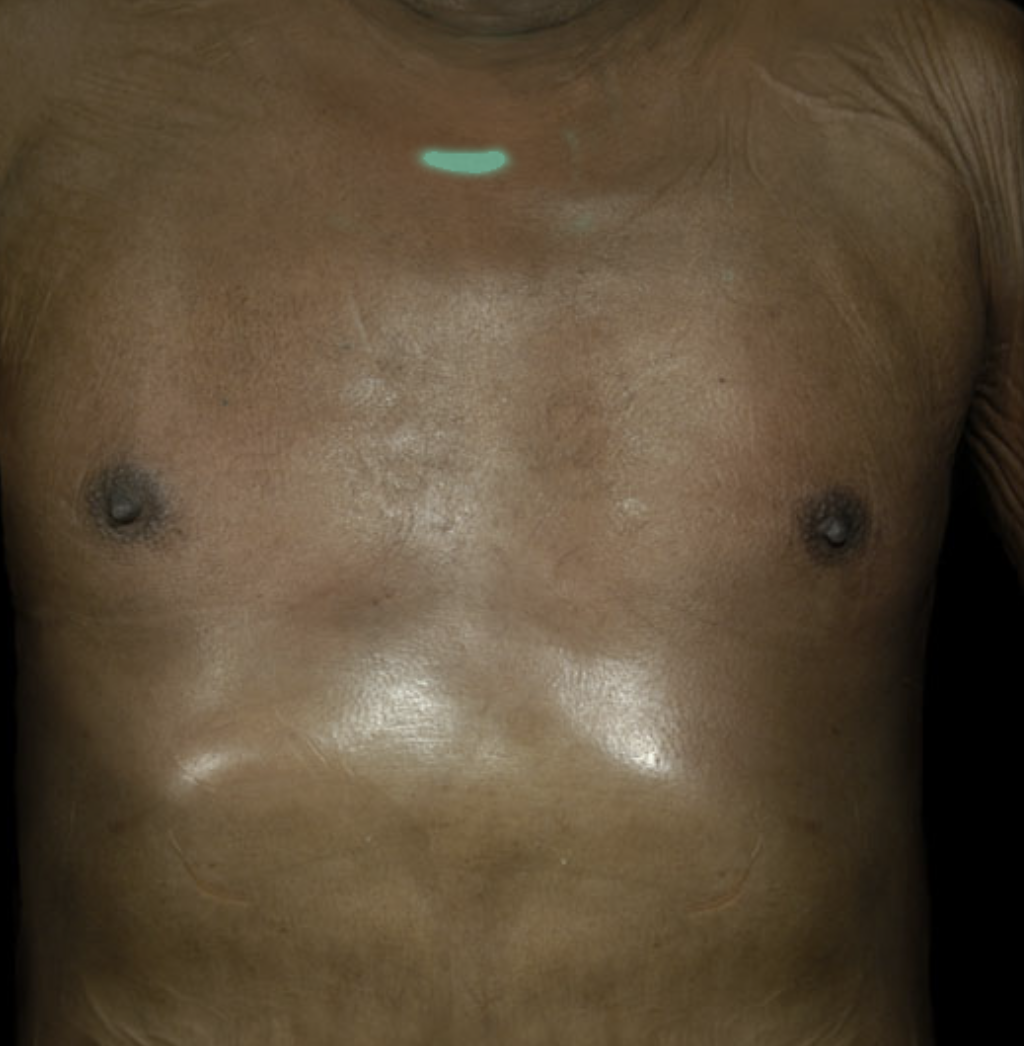Exercise 11 - Regional Anatomy III: The Trunk
1/75
There's no tags or description
Looks like no tags are added yet.
Name | Mastery | Learn | Test | Matching | Spaced |
|---|
No study sessions yet.
76 Terms
body of vertebra

Inferior articular facet

Lamina

Pedicle

spinous process

Superior articular facet
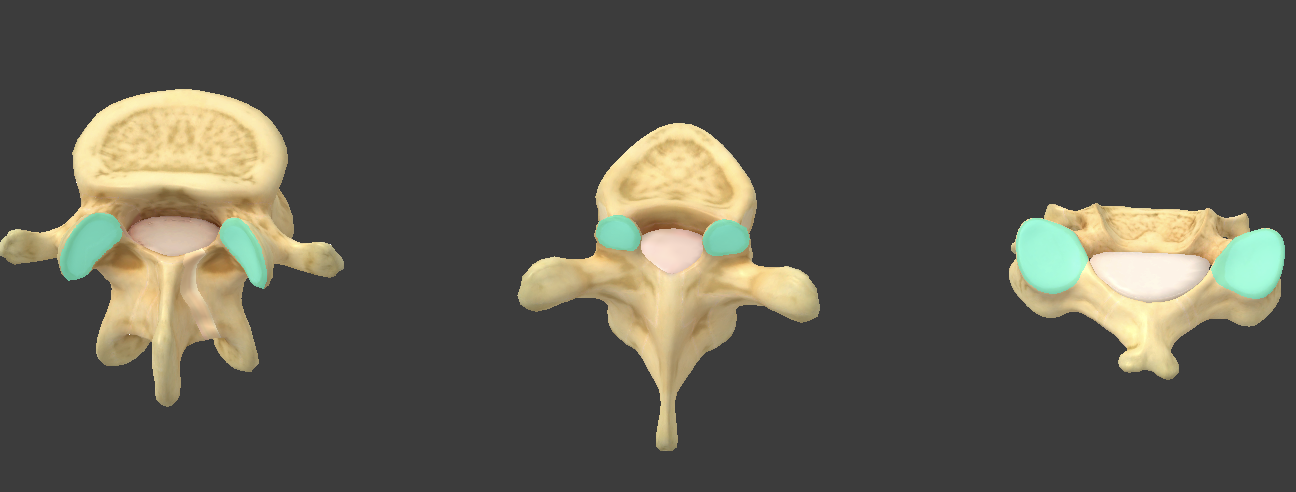
Transverse costal facet of thoracic vertebra
only on thoracic
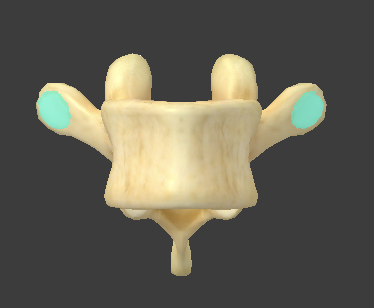
Transverse process

Typical cervical vertebra
small body, large vertebral foramen, body anterior and spine posterior, transverse foramen present for blood vessels and bifid spinous process (Y-shaped)
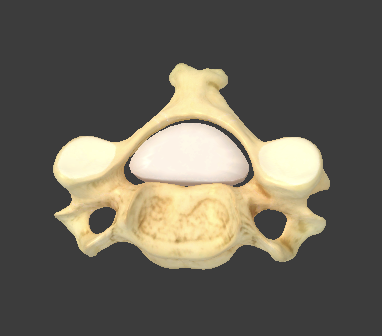
Typical lumbar vertebra
large body, superior articular facets curved inwards, looks like moose
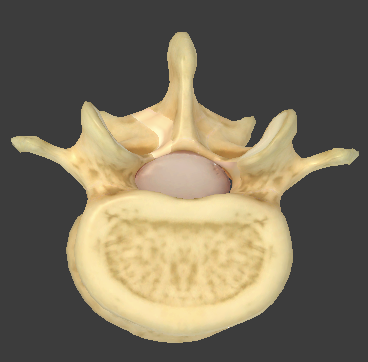
Typical thoracic vertebra
medium body, superior articular facets look like headlights, looks like a giraffe
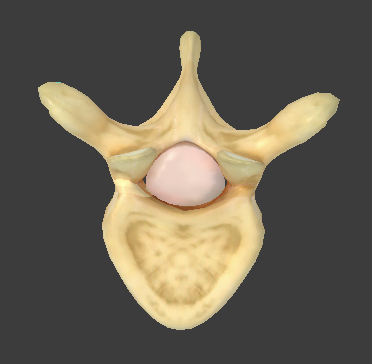
Vertebral foramen

Anterior arch of atlas
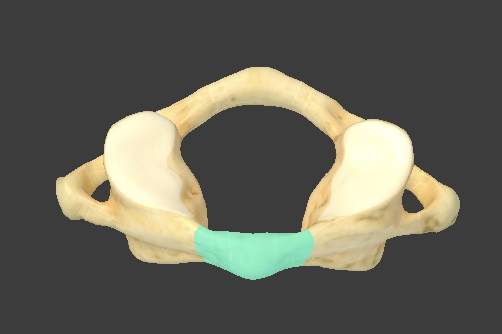
Posterior arch of atlas
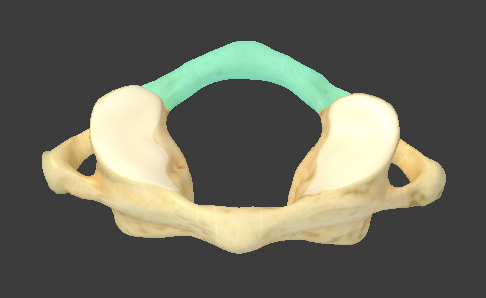
atlas
the first of seven cervical vertebrae (vertebra C1); supports the weight of the skull.
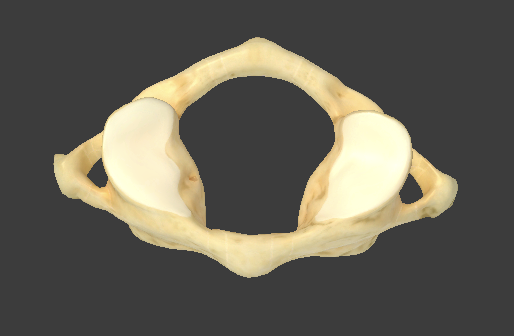
axis
the second cervical vertebra (C2); acts as a pivot for the rotation of the head and atlas
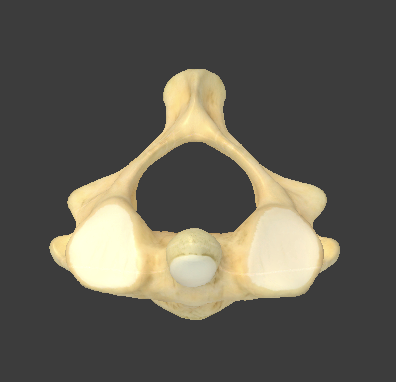
axis dens
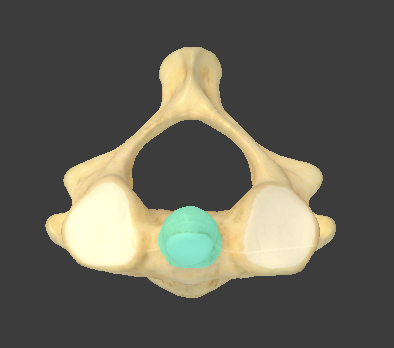
Anterior sacral foramen
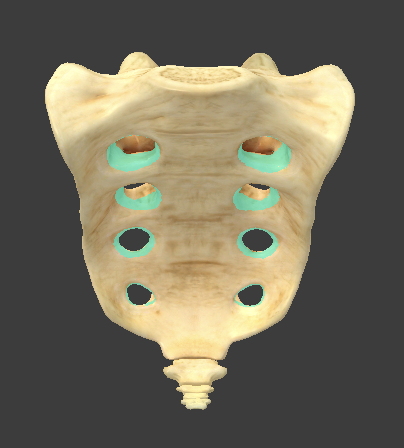
Coccyx
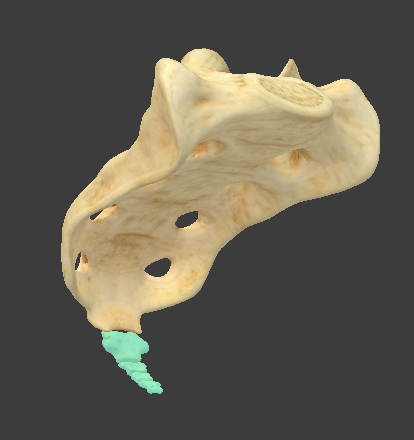
Posterior sacral foramen
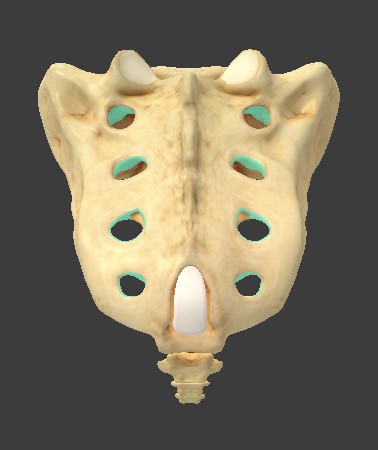
Promontory of sacrum
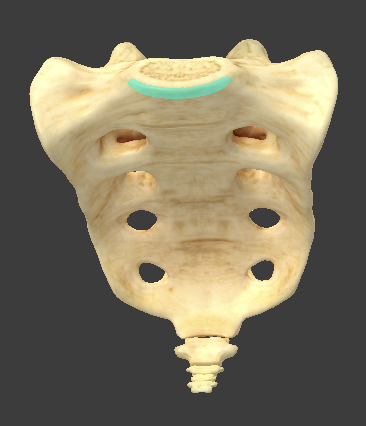
sacrum
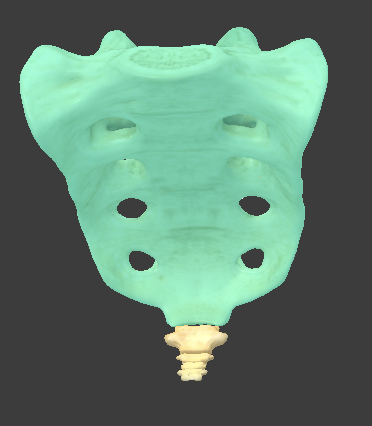
vertebrochondral ribs
ribs 8-10 (3 total); false ribs not directly attached to sternum
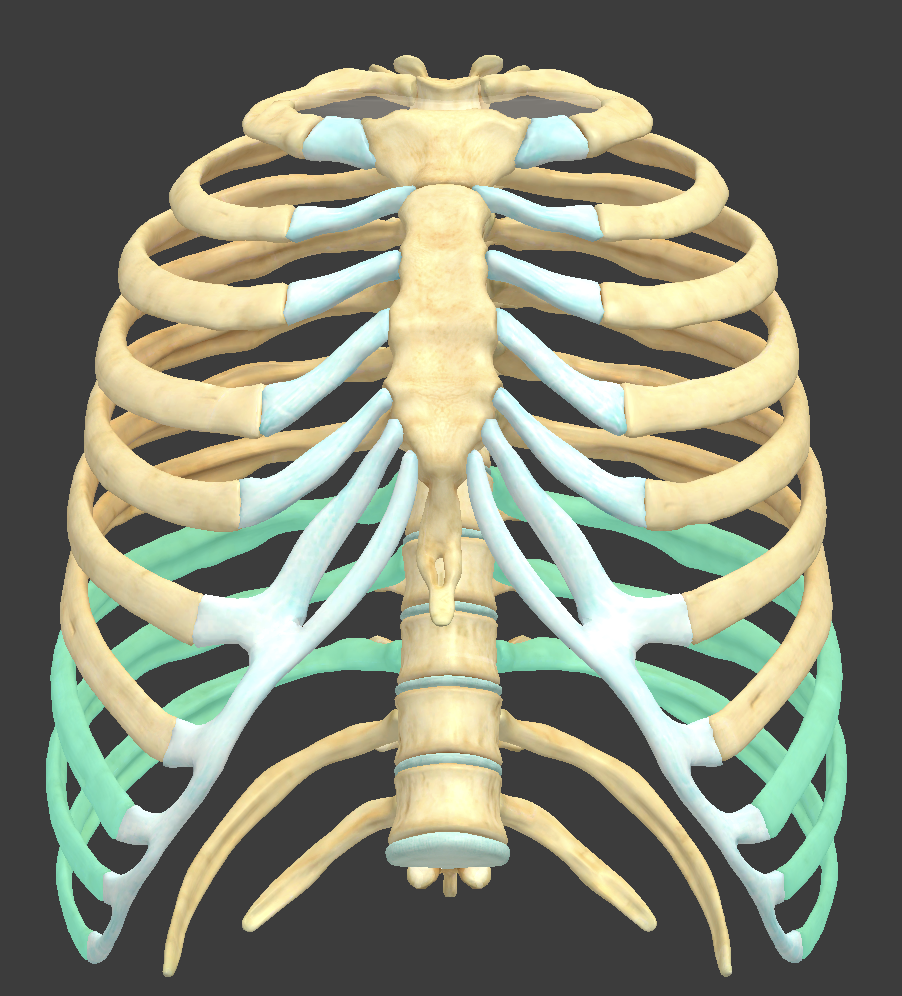
floating ribs (vertebrochondral ribs)
ribs 11-12 (2 total); false ribs with no attachment to sternum
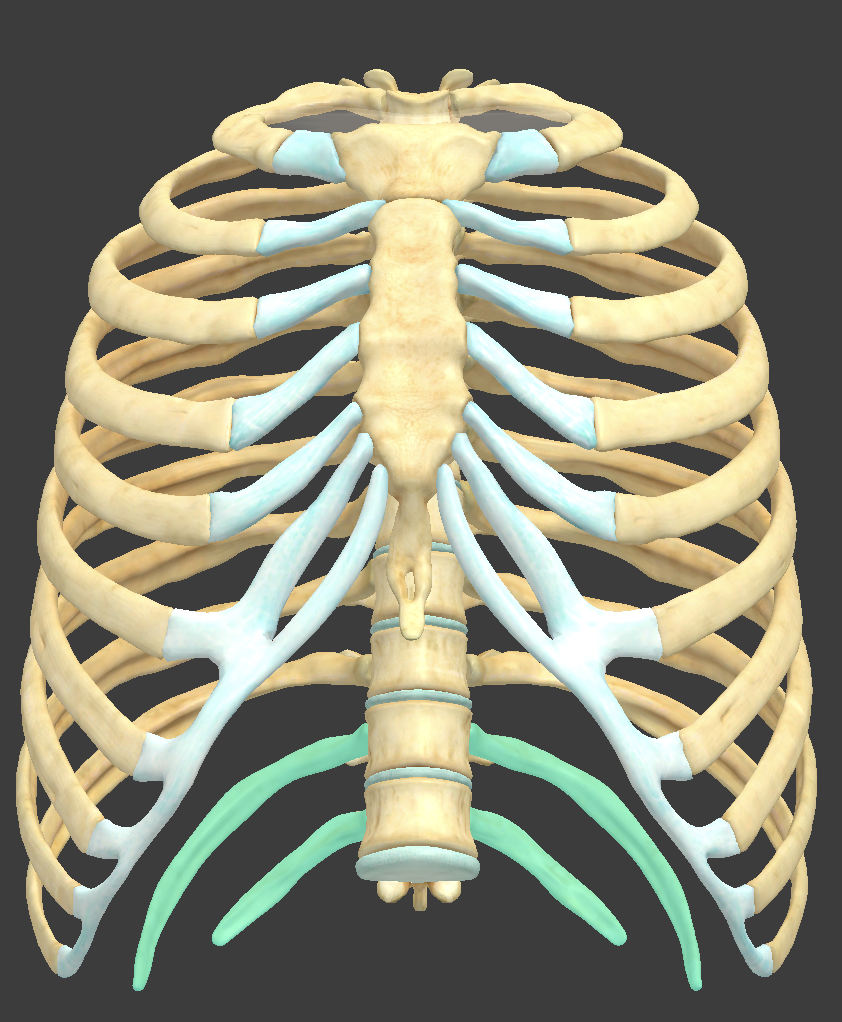
true ribs
ribs 1-7 (8 total), direct attachment to sternum via costal cartilages
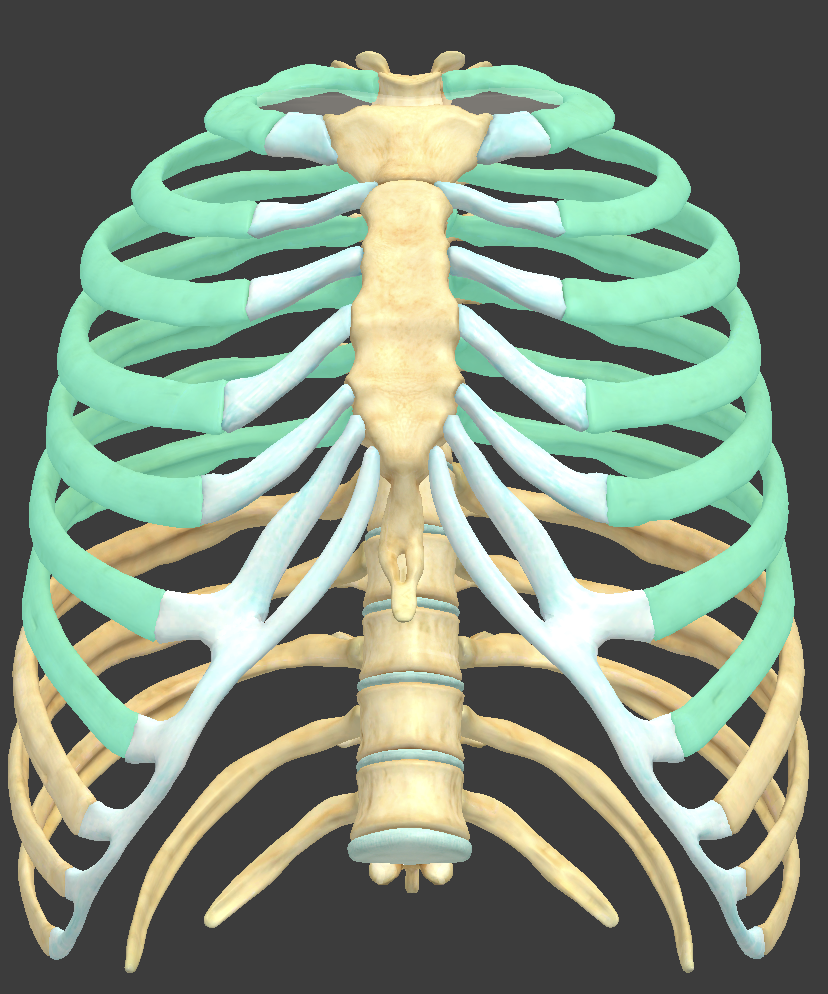
Body of sternum
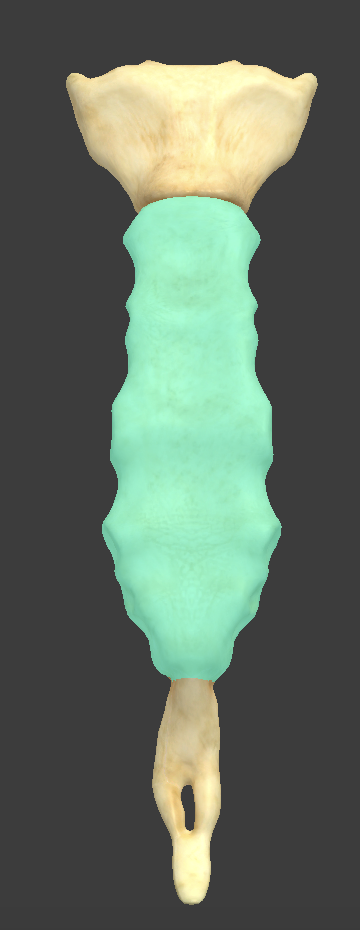
Jugular notch of sternum
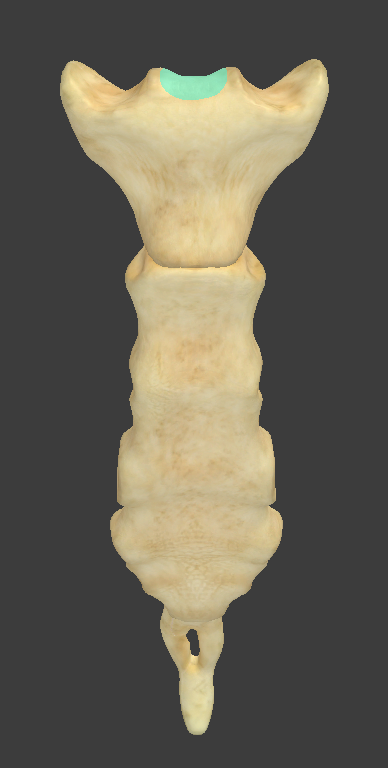
Manubrium
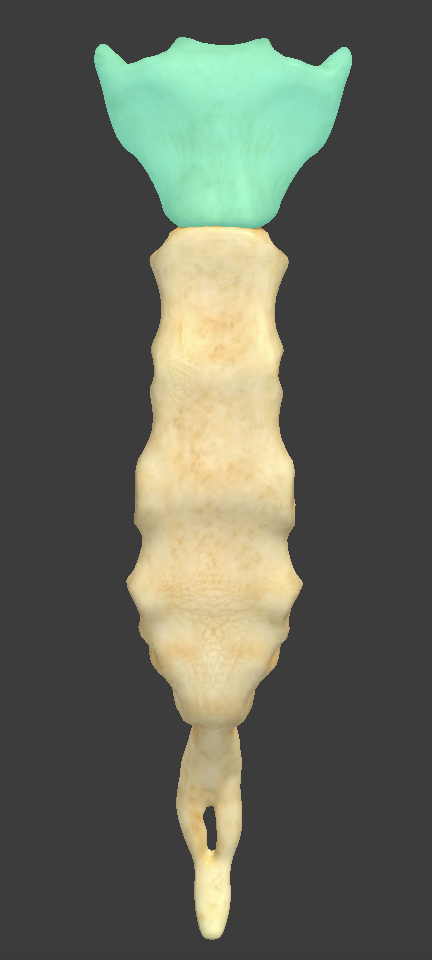
sternal angle
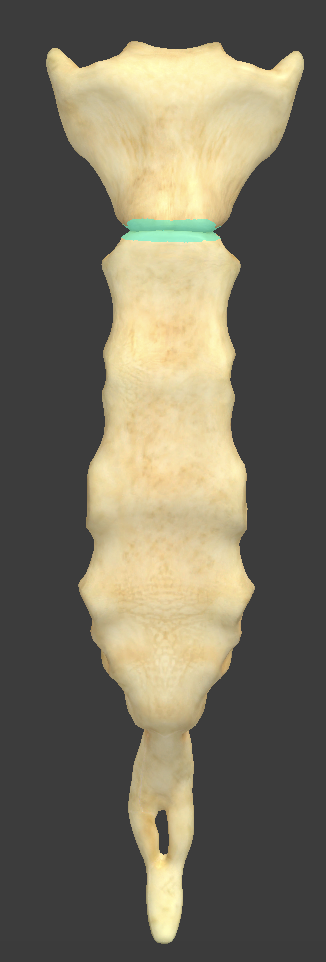
Xiphoid process
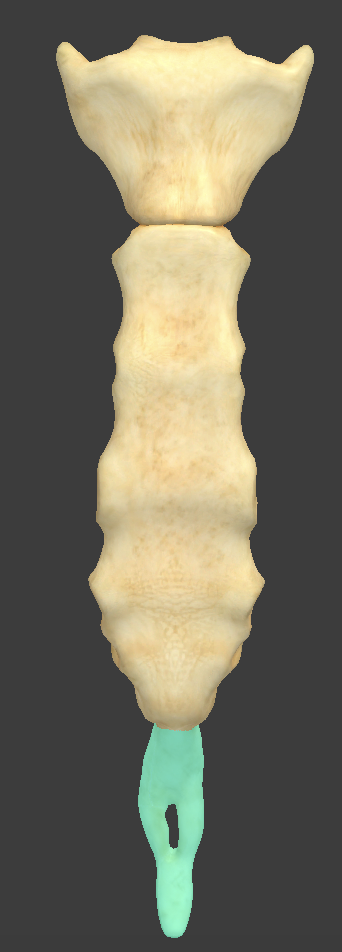
Costal cartilages
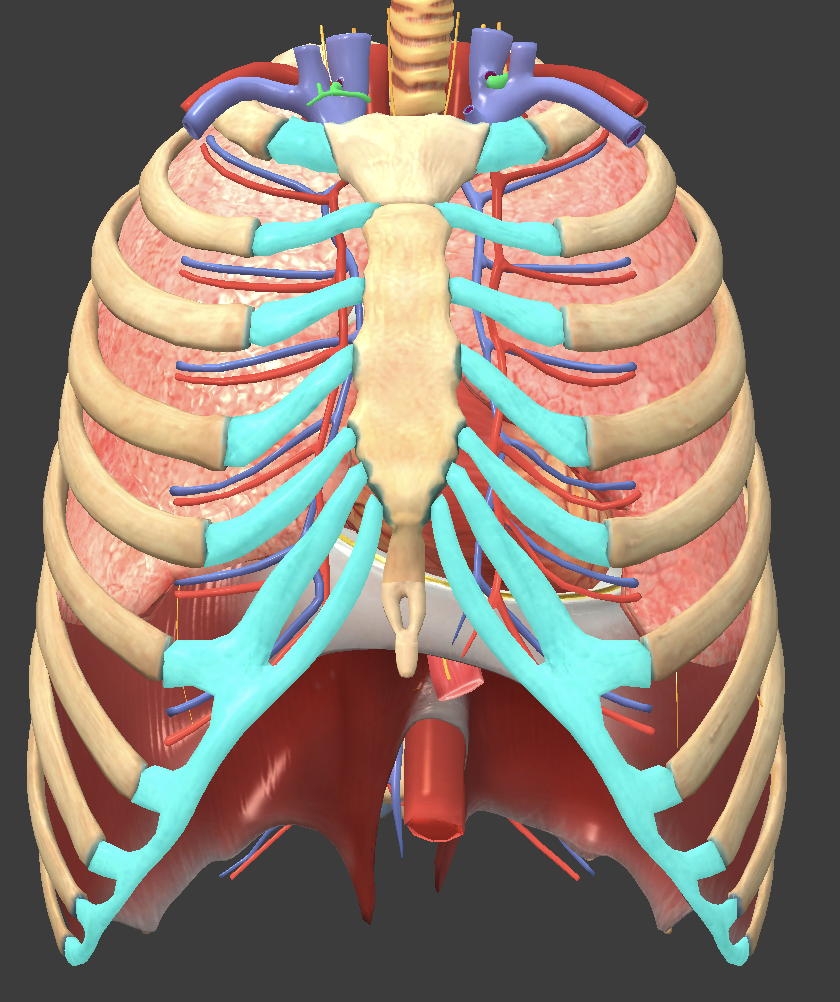
costal margin
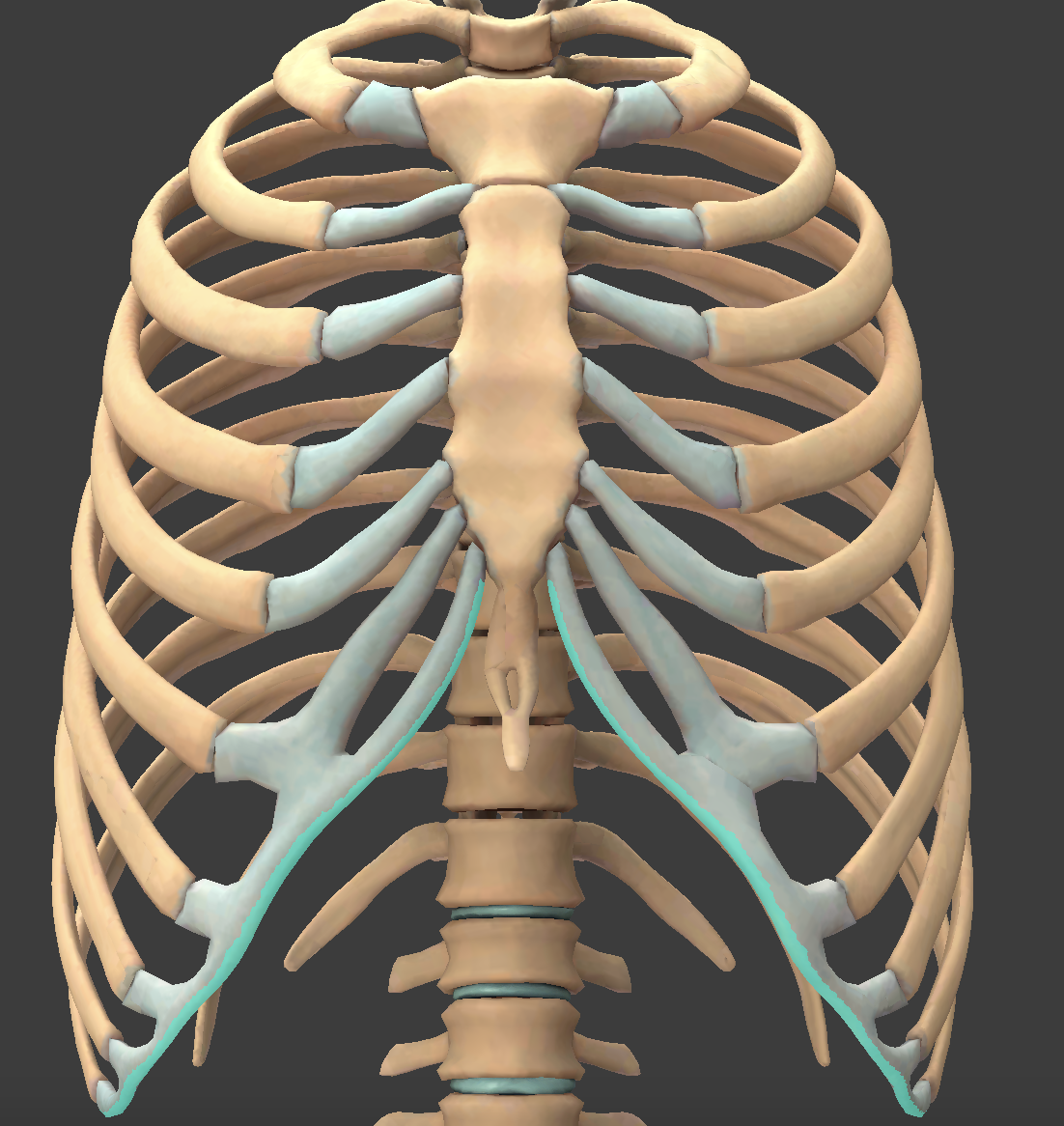
false ribs
ribs 8-12 (5 total)
pectoral girdle
a bony structure that connects the upper limbs to the upper body; made of clavicle and scapula
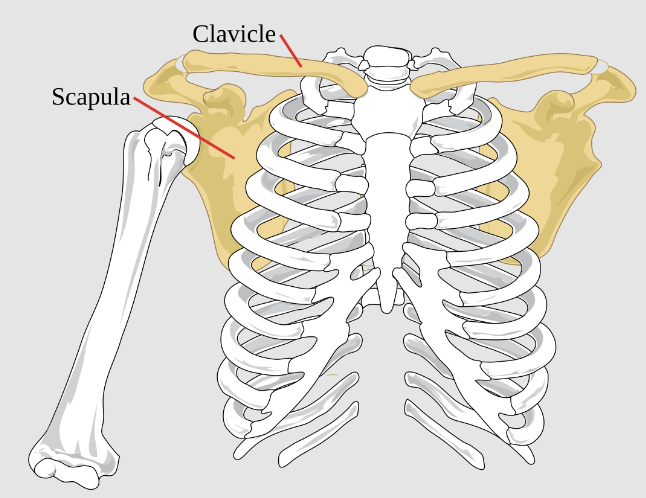
vertebral head of rib
has head, neck, tubercle, articular facet for transverse process; allow to connect to vertebrae
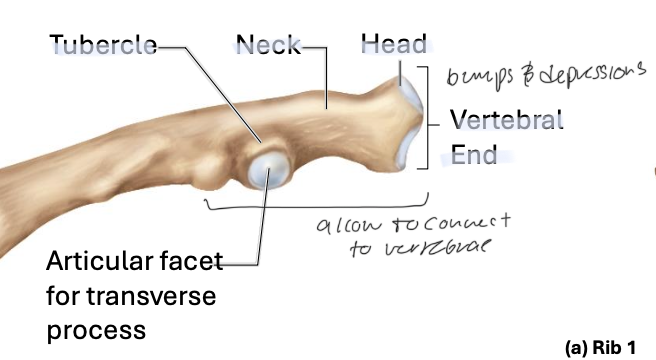
sternal end of rib
smooth, has shaft
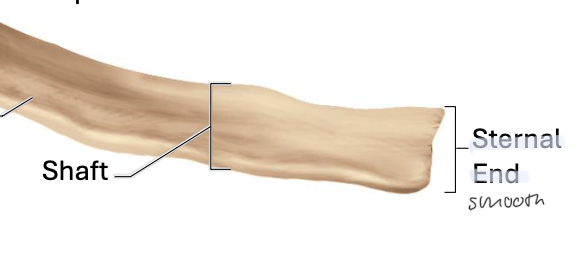
costal groove
a shallow depression in the body of a rib that provides a passageway for nerves and blood vessels
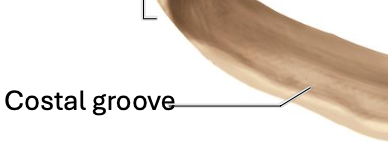
angle of rib / costal angle
the area where a rib sharply bends
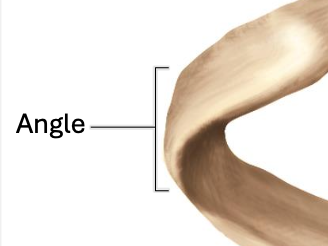
number of cervical vertebrae
7 (C1-C7)
number of thoracic vertebrae
12 (T1-T12)
number of lumbar vertebrae
5 (L1-L5)
number of sacral foramina
5 (S1-S5)
cervical lordosis
the natural curve of the neck's spine (30–40 degrees) which helps with posture, shock absorption, and head support
thoracic kyphosis
natural curve of thoracic vertebrae (between 20 to 40 degrees)
lumbar lordosis
the inward curve (40–60 degrees) of the lower back, or lumbar spine, that occurs just above the buttocks
sacral kyphosis
a downward and forward curve of the spine that begins at the sacrovertebral articulation and ends at the coccyx
scoliosis
a spinal deformity that causes an abnormal sideways curve of the spine
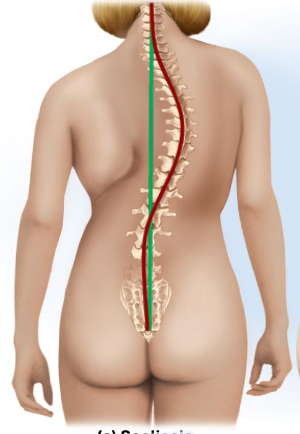
hyperkyphosis
condition where the spine (specifically thoracic portion) has an excessive forward curvature, or kyphosis, that is greater than 50 degrees
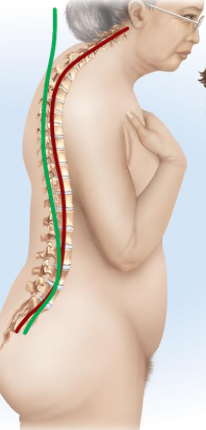
hyperlordosis
a condition where the lower back (lumbar vertebrae) curves too far inward, creating an exaggerated C-shape
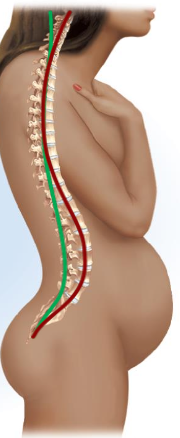
transverse foramen of cervical vertebrae
only cervical
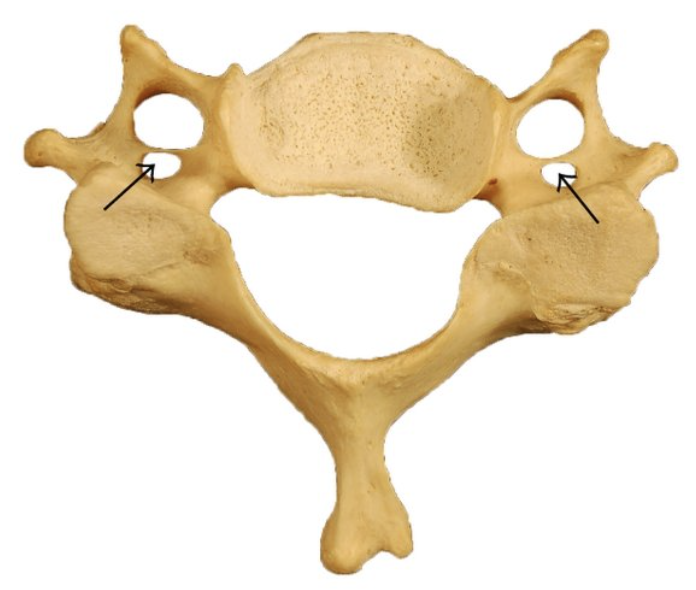
vertebral prominens
vertebrae C7; has large, singular spinous process that's easily felt and seen at the base of the neck
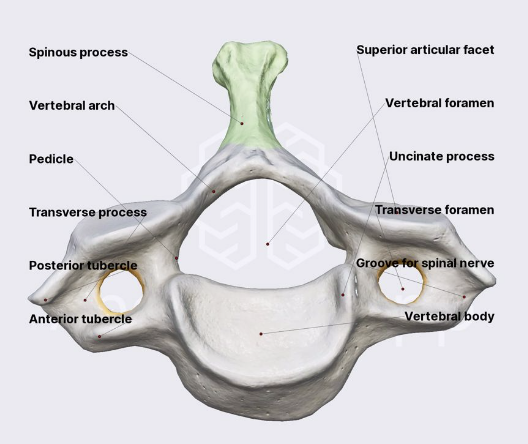
total pairs of ribs in body
12
sacral canal
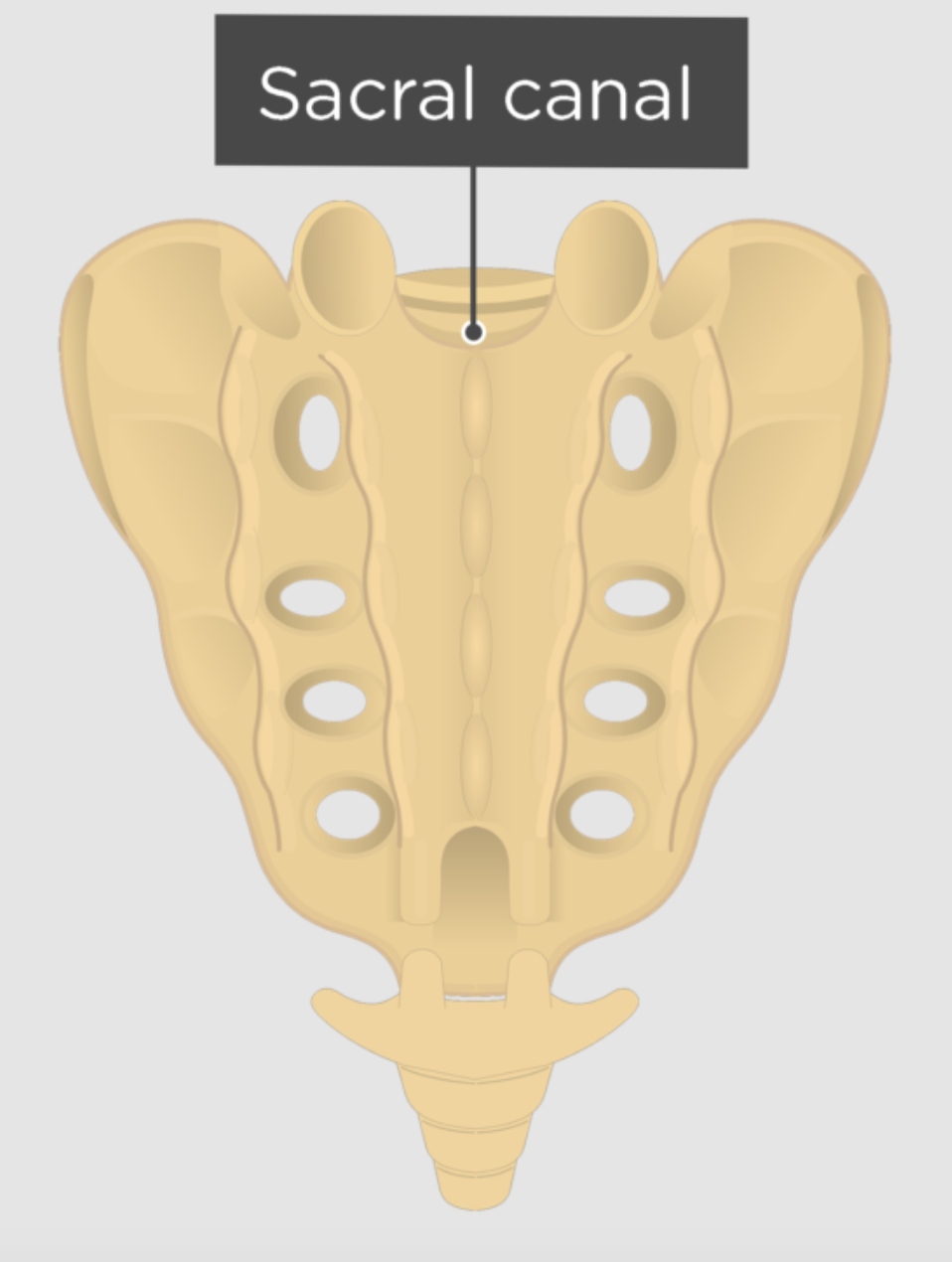
External abdominal oblique
flex and rotate vertebral column; compress abdomen; 2nd most superficial
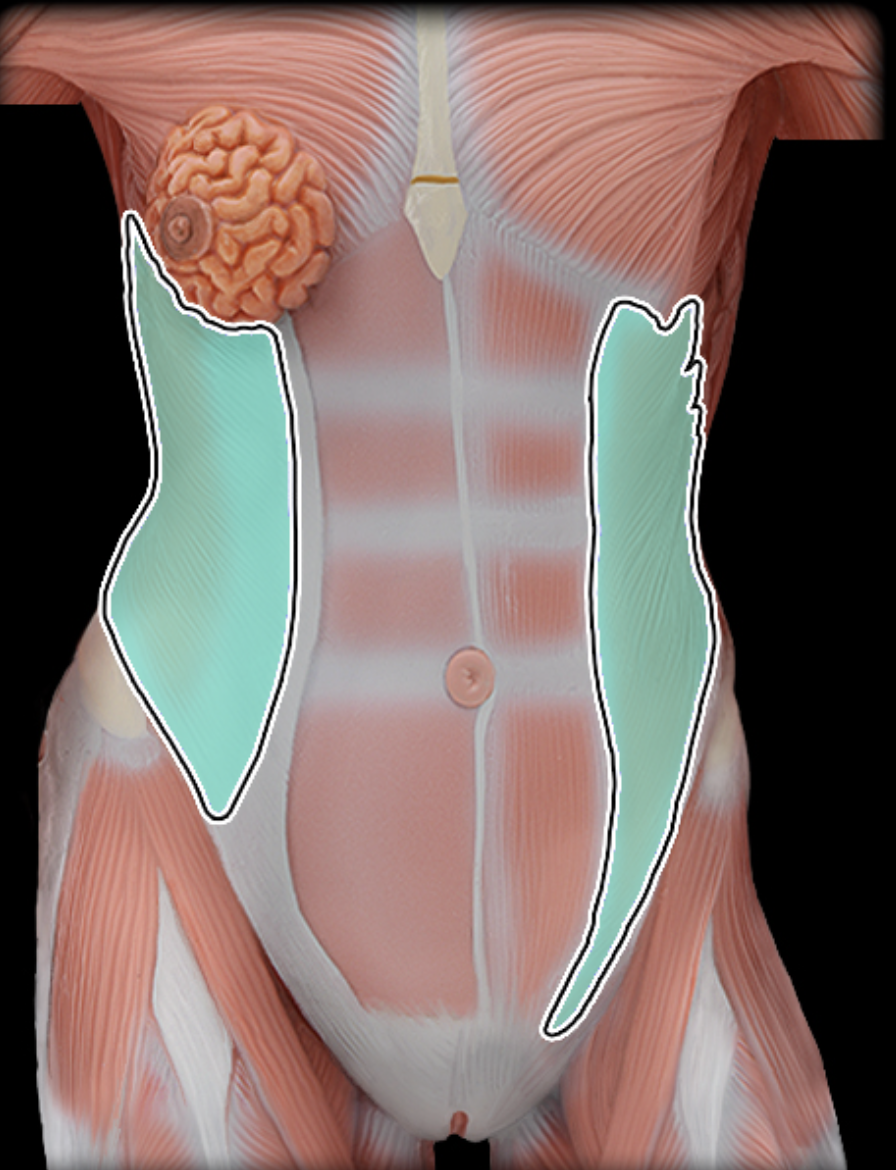
Linea alba
runs superiorly and inferiorly from the umbilicus; tendon that extends from xiphoid process to pubic symphesis; favored site for surgical entry into the abdominal cavity
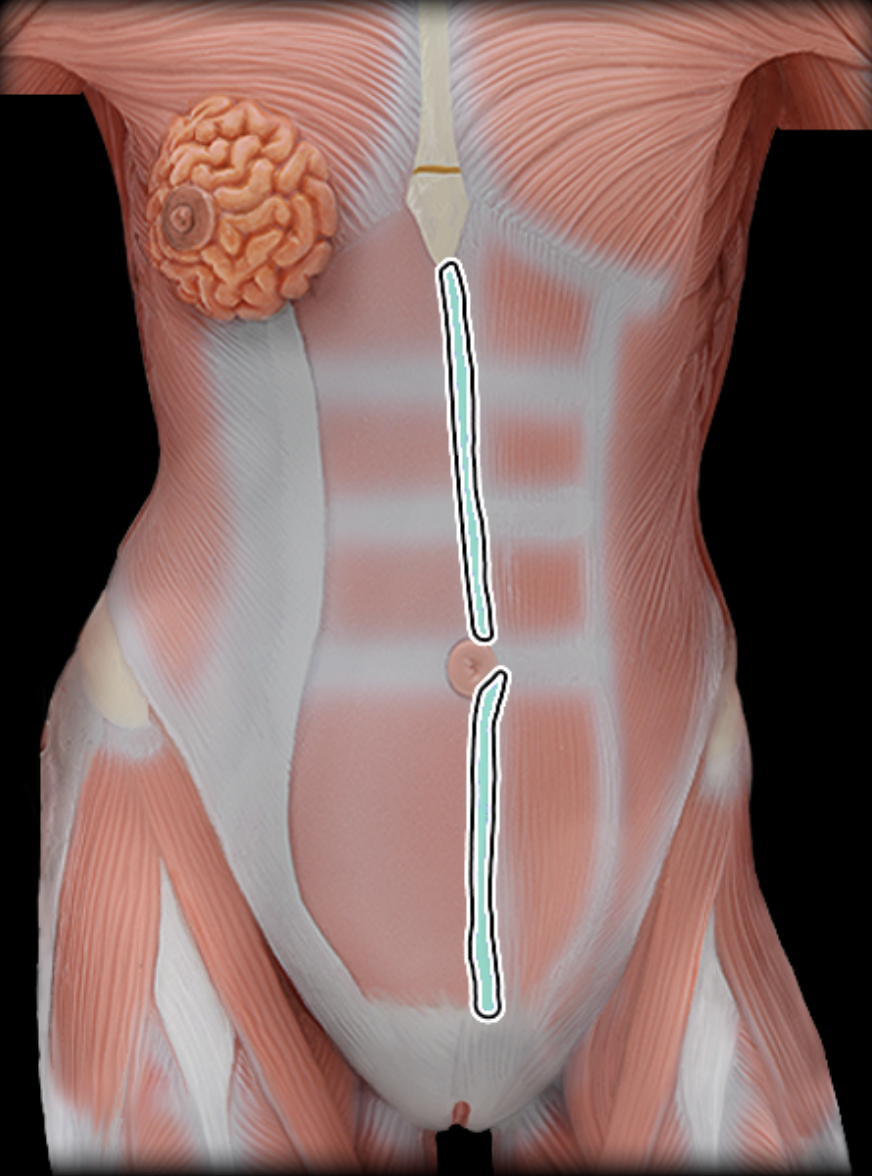
Rectus abdominis
flexes and rotates lumbar region of vertebral column (sit-ups); most superficial
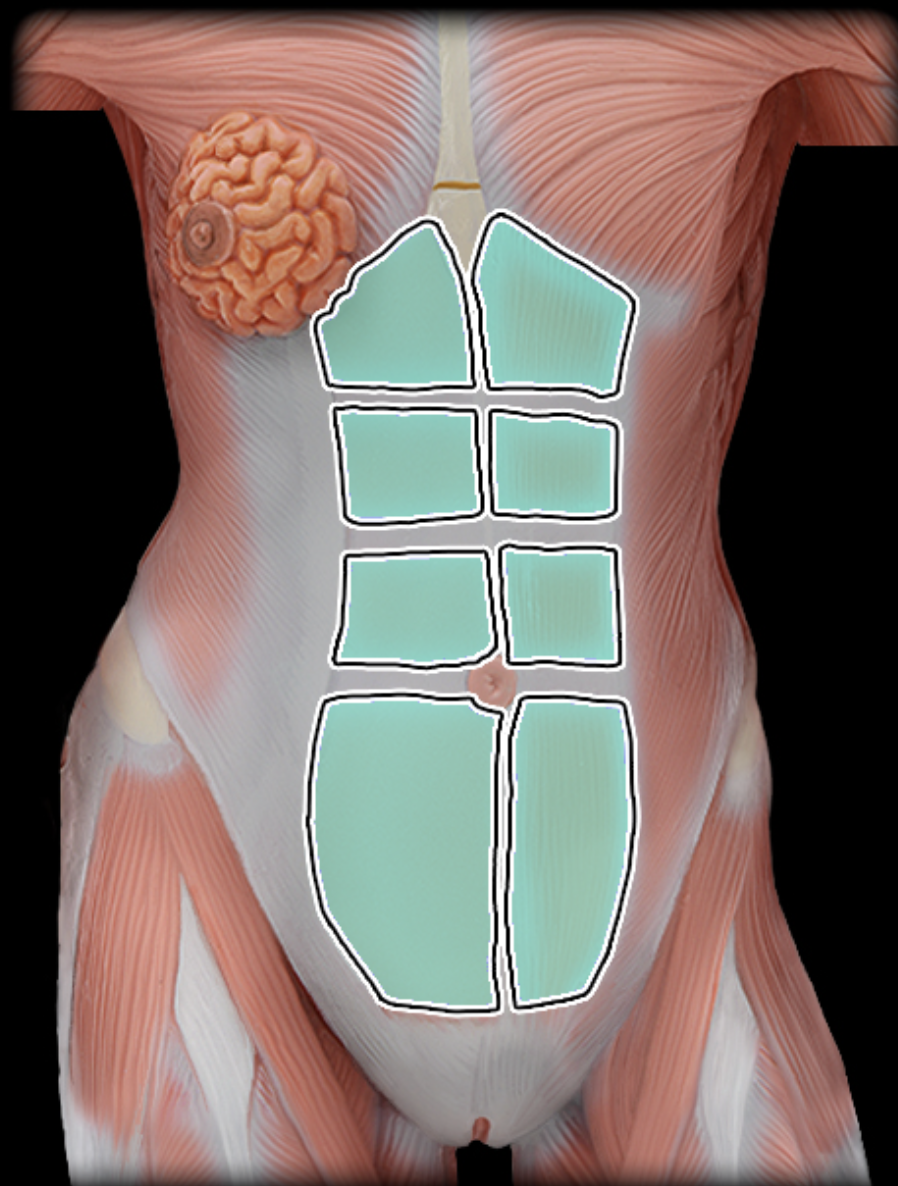
trapezius
elevates, rotates, retracts, and depresses scapula; extends head (shrugging shoulders)
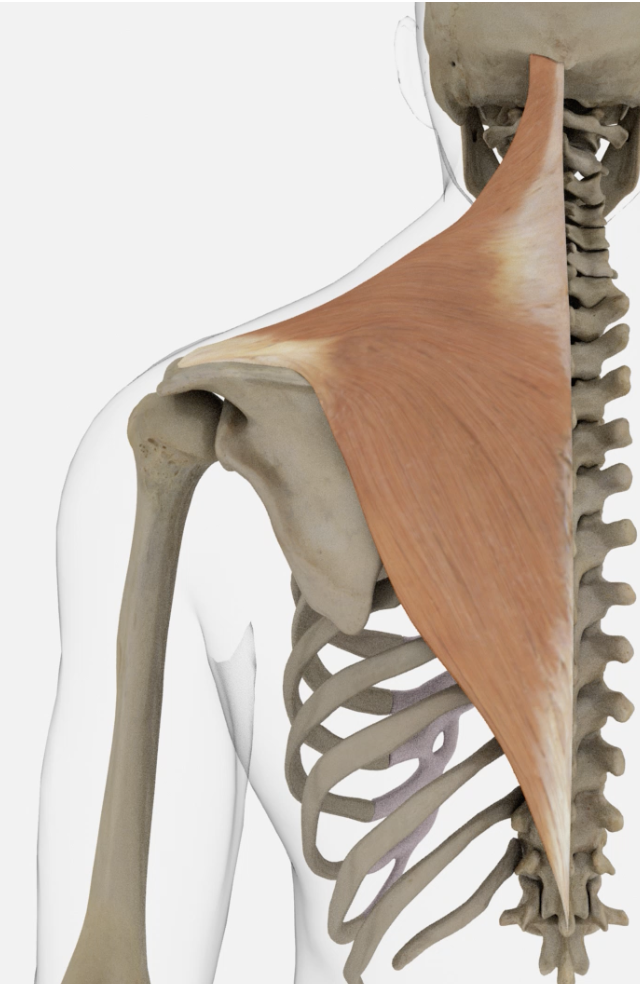
latissimus dorsi
prime mover of arm extension; powerful arm adductor; medially rotates arm at shoulder (chin-up muscles)
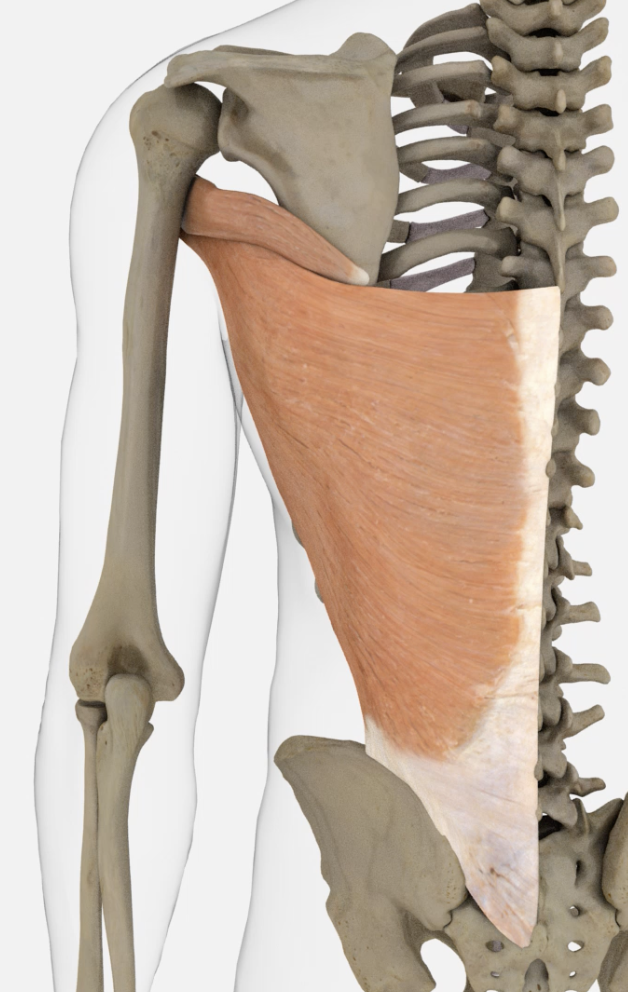
erector spinae
made of the longissimus, iliocostalis, and spinalis muscles running from lumbar vertebrae, sacrum, and iliac crest and attaching to the medial portions of vertebrae and above ribs; prime movers of back extension and common site of back spasms
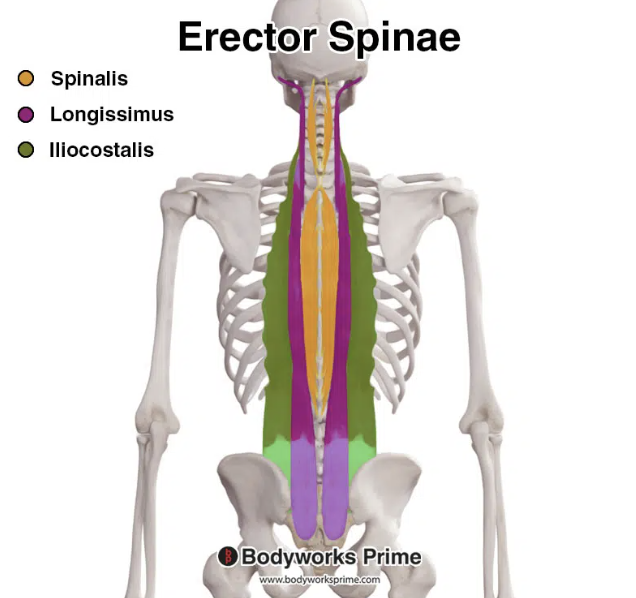
iliocostalis
extend the spine when contracting bilaterally and to laterally flex the spine when contracting unilaterally; most lateral of erector spinae
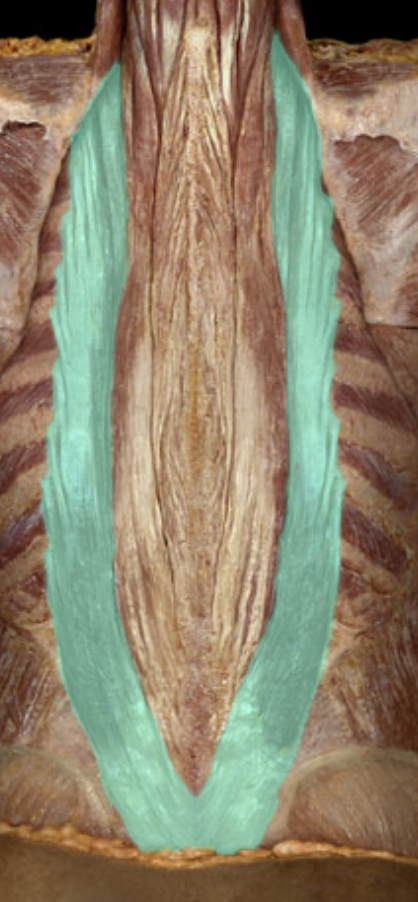
longissimus
Neck extension: bending the neck backwards. Lateral neck flexion: bending the neck to each side. Back extension: bending the back backwards; middle of erector spinae
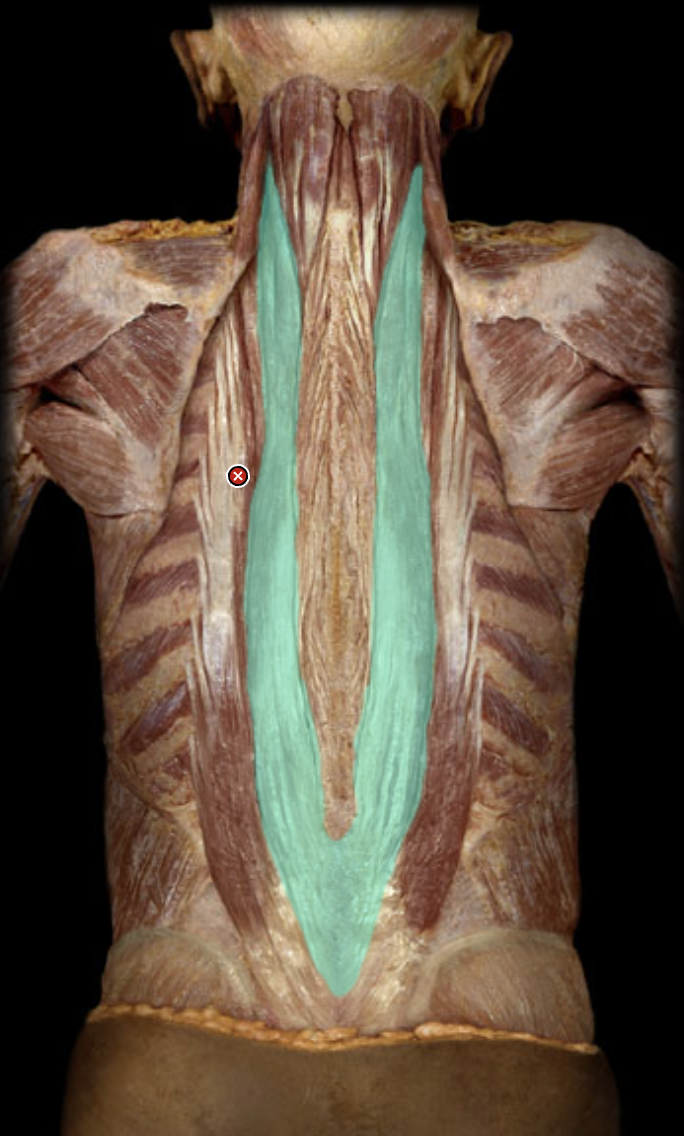
muscles of posterior trunk
trapezius, latissimus dorsi, erector spinae (iliocostalis, longissimus, spinalis)
posterior median furrow
vertical groove in center of back (surface anatomy); spinous processes of vertebrae visible when spinal column flexed
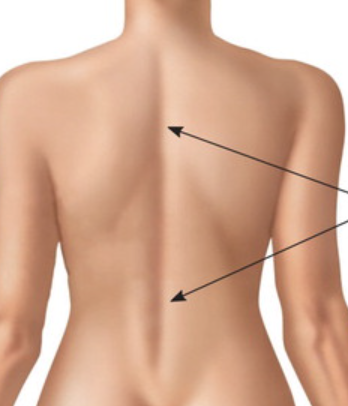
triangle of auscultation
a small, clinically important area on the back of the body where the trapezius, latissimus dorsi, and rhomboid major muscles meet; where doctors listen for lung sounds
transversus abdominis
compresses abdomen; most deep
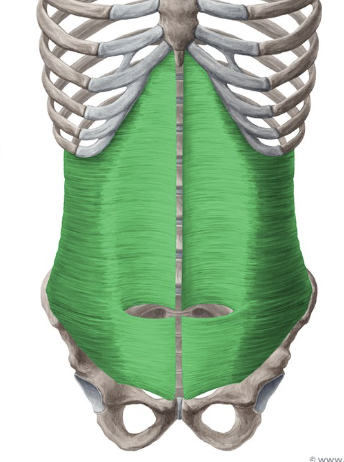
internal oblique m.
flex and rotate vertebral column; compress abdomen; 2nd most deep
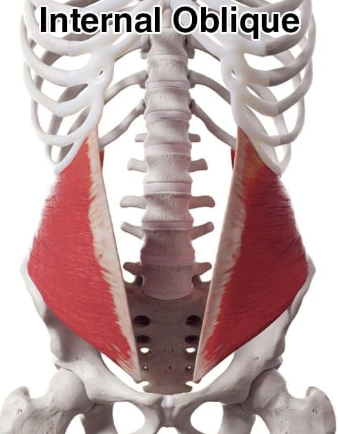
pectoralis major
prime mover of arm flexion; adducts and medially rotates (push-ups)
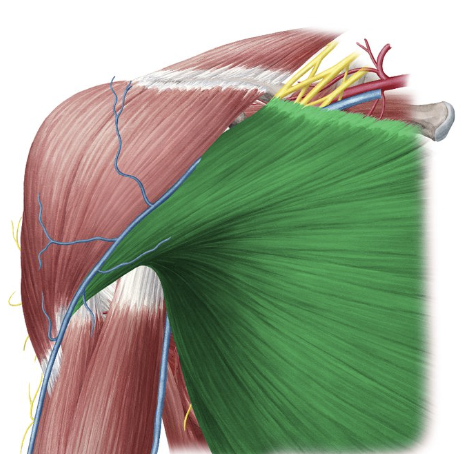
serratus anterior
abducts and rotates scapula upwards; lifts rub cage assisting in inhalation
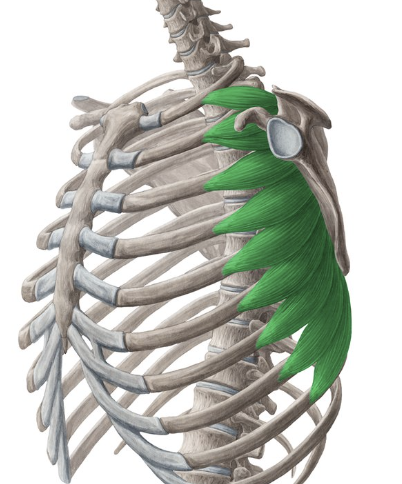
external intercostals
elevates ribs during inhalation
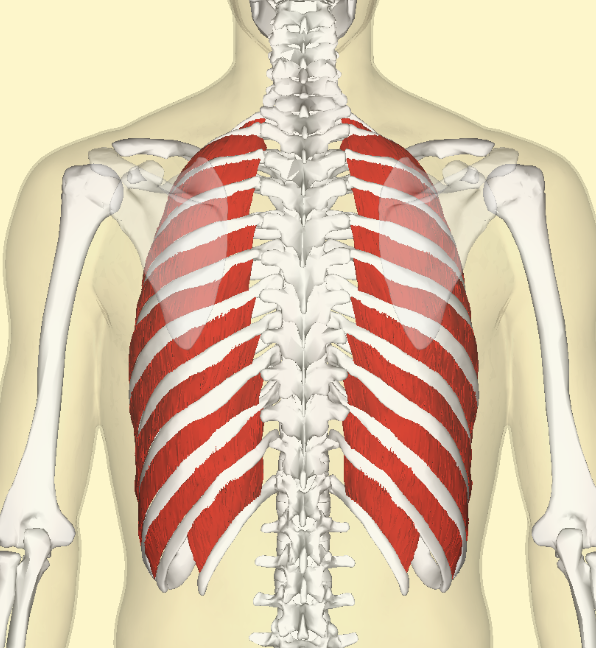
internal intercostals
depresses ribs during forced exhalation
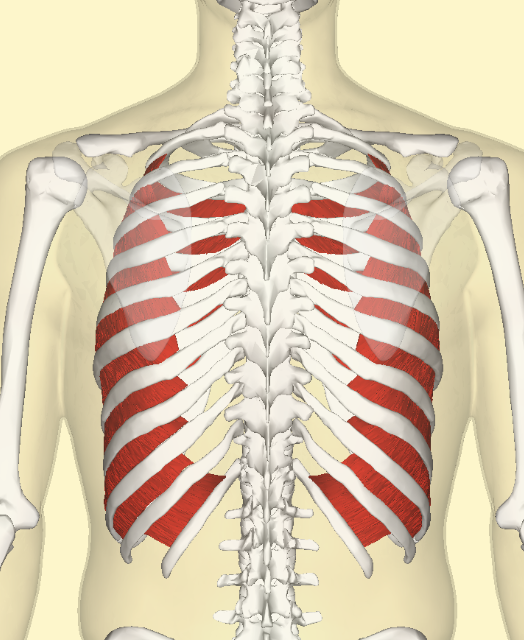
diaphragm
prime mover of inhalation; increases thorax volume
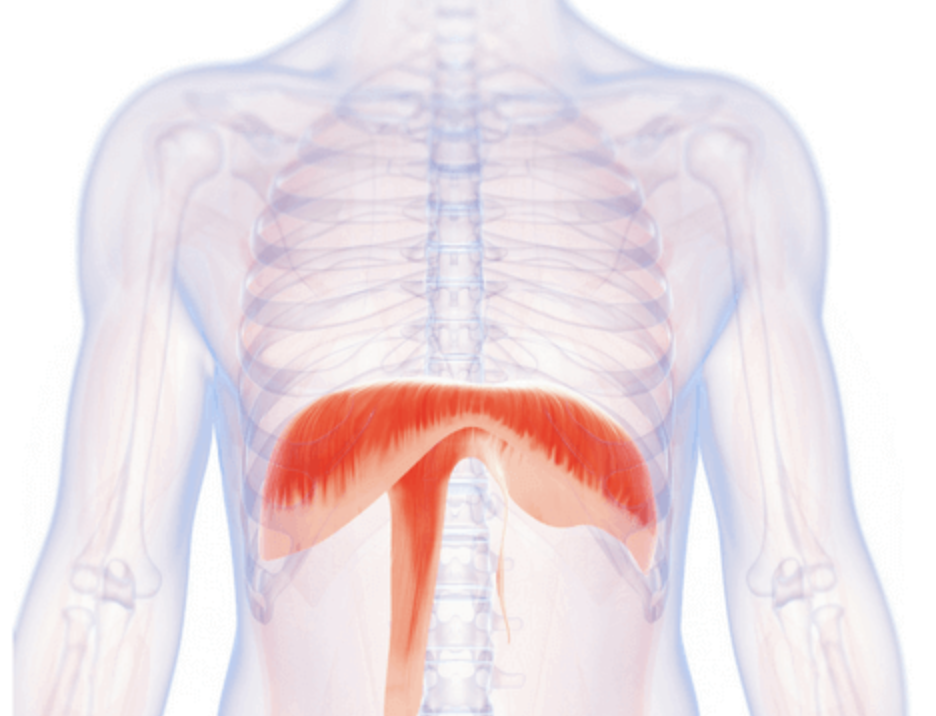
muscles of anterior trunk
pectoralis major, serratus anterior, external/internal intercostals, diaphragm, rectus abdominis (with linea alba), external/internal (abdominal) obliques, transverse abdominus
axillary folds of axilla
anterior fold = edge of pectoralis major, posterior = edge of latissimus dorsi; base = hair growth and lymph nodes
umbilicus
navel; belly button
Spinalis
part of erector spinae
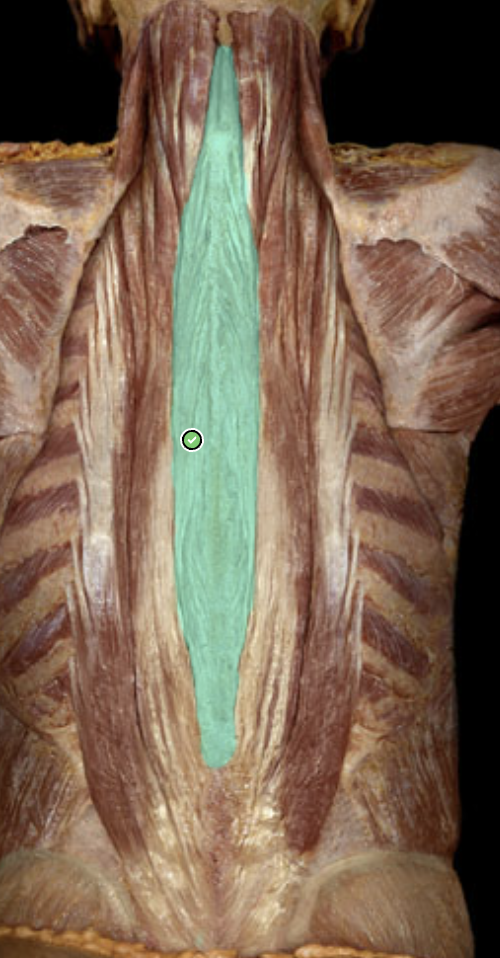
Surface projection of jugular notch of sternum
